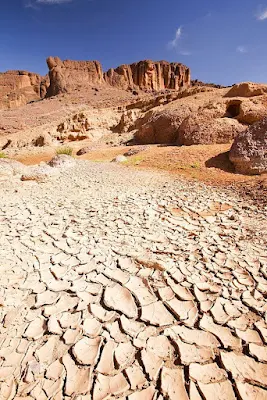The history of North Africa is rich and complex, marked by the influence of various conquerors and prominent figures over millennia. Here, I'll provide an overview of the Phoenicians, Vandals, Romans, and Arabs and their impacts on the region:
Phoenician
The Phoenicians were an ancient Semitic-speaking civilization originating from the eastern Mediterranean, specifically the coastal regions of modern-day Lebanon and Syria. They were skilled sailors and traders, establishing colonies along the North African coastline, including Carthage (in present-day Tunisia) and Utica
Prominent Figure: Hannibal Barca was a Carthaginian military commander famous for leading his army, including elephants, across the Alps during the Second Punic War against Rom
Impact: The Phoenicians contributed to the development of trade and commerce in North Africa, creating powerful city-states like Carthage. Their conflicts with Rome, particularly the Punic Wars, shaped the fate of the region, leading to Carthage's eventual destruction and Roman dominanc
Vandal
The Vandals were a Germanic tribe that migrated into North Africa in the 5th century AD. Led by King Genseric, they established the Vandal Kingdom with its capital at Carthage in 439 AD
Prominent Figure: Genseric was a key figure who led the Vandals into North Africa and established their kingdom
Impact: The Vandals' rule in North Africa was marked by religious intolerance and the persecution of Catholics. They sacked Rome in 455 AD and maintained control over parts of North Africa until the Byzantine reconquest in the 6th century
Roman
The Romans were one of the most influential conquerors in North Africa. They initially conquered Carthage in the 3rd Punic War, making it a Roman province. North Africa became known as "Africa Proconsularis" and was an important grain-producing region for the Roman Empire
Prominent Figures: Julius Caesar and Augustus Caesar played significant roles in the Roman conquest and governance of North Africa. Additionally, notable figures like Septimius Severus, a Roman Emperor born in North Africa, left a lasting impact
Impact: The Romans brought infrastructure, governance, and Roman culture to North Africa, leaving a profound and enduring mark on the region's history, including the spread of Christianity
Arab
The Arab conquest of North Africa began in the 7th century AD when Muslim armies, led by figures like Uqba ibn Nafi, crossed into the region. They rapidly spread Islam and Arab culture across North Africa
Prominent Figure: Uqba ibn Nafi was a key figure in the Arab conquest of North Africa and established the city of Kairouan in present-day Tunisi
Impact: The Arab conquest had a profound and lasting impact on North Africa, leading to the spread of Islam, the Arabic language, and Arab customs. Islamic dynasties like the Umayyads and Abbasids ruled the region, and North Africa became a center of Islamic scholarship and cultur
In summary, North Africa's history is a tapestry of conquests, with each group leaving its unique imprint on the region's culture, society, and identity. The legacies of the Phoenicians, Vandals, Romans, and Arabs continue to shape North Africa's rich and diverse history to this day





